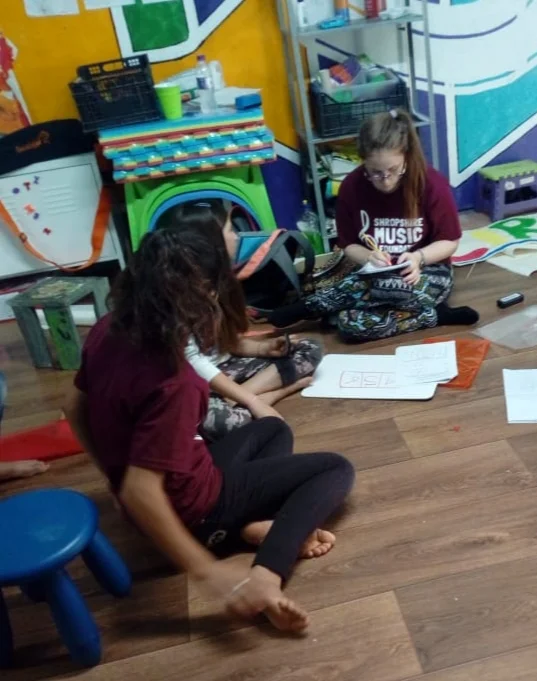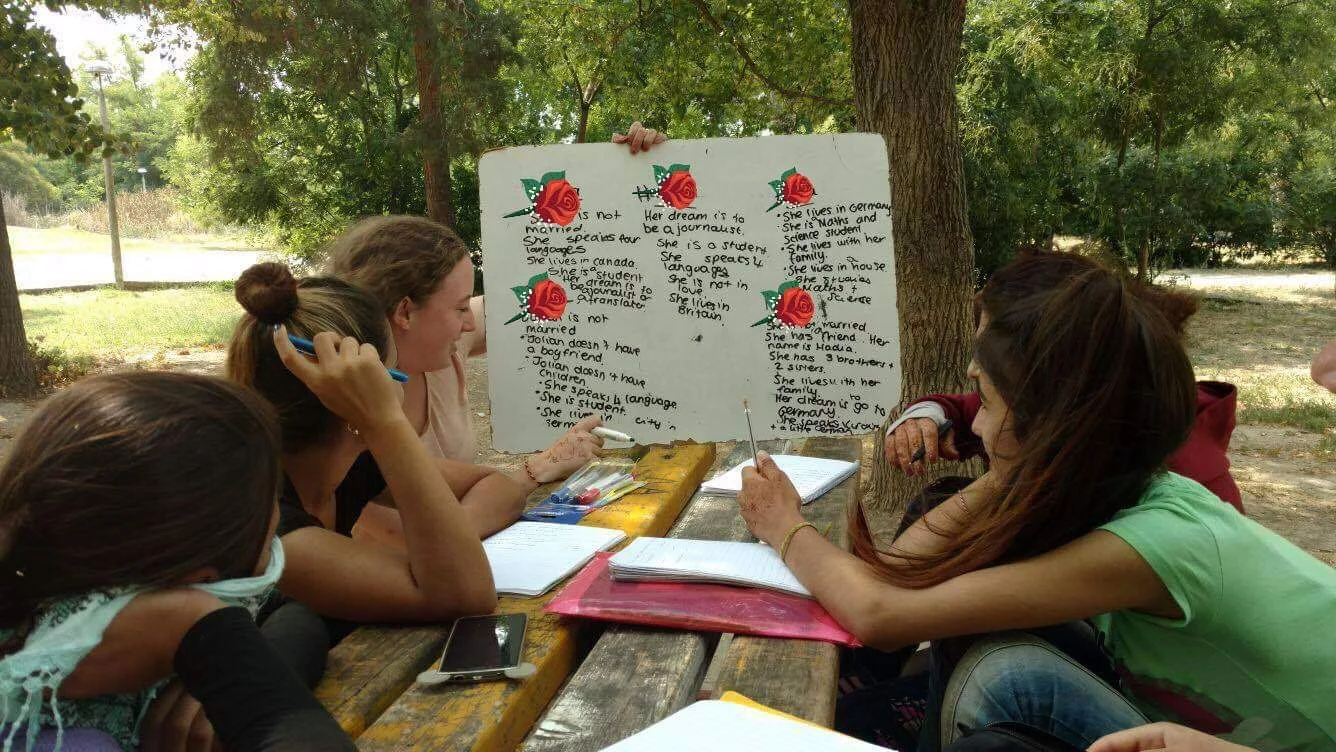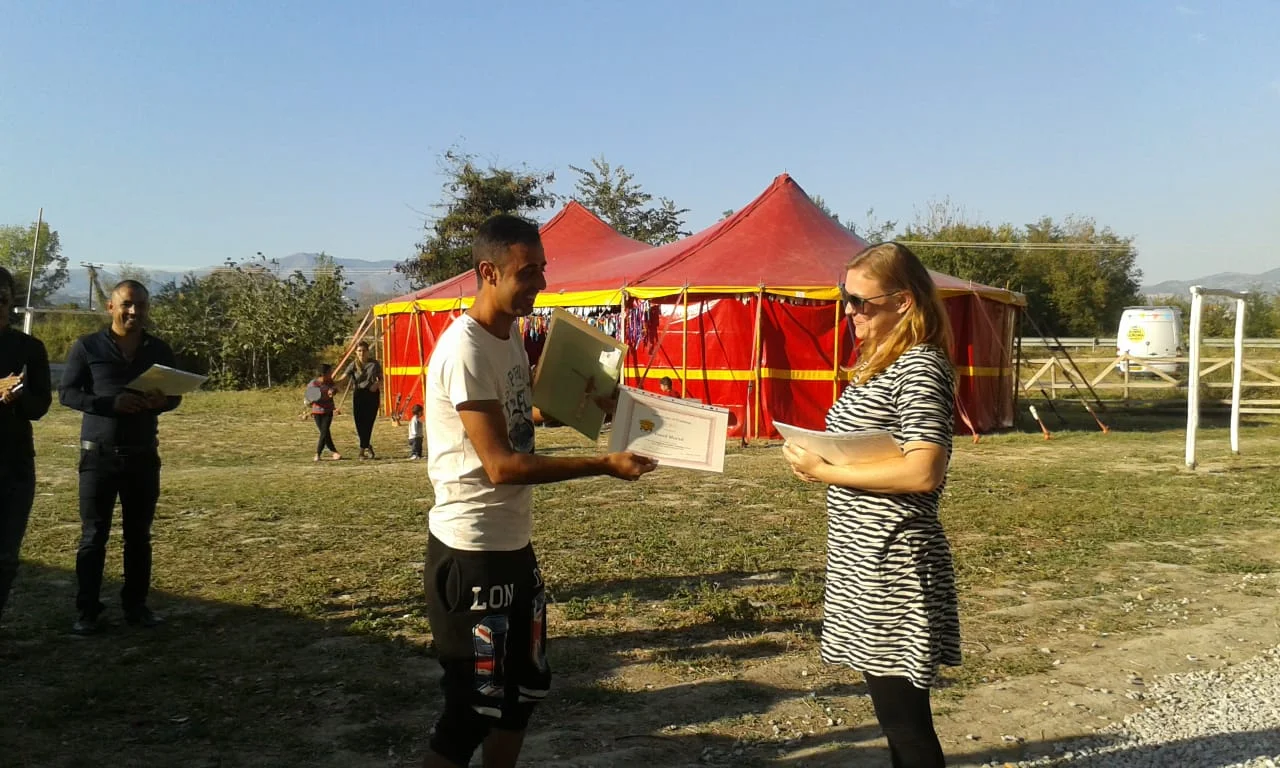Tell us a little about yourself:
My name is Rebekah L. and I am 26 years old. Before I arrived in Serres I worked in England as a school English teacher. I had previously volunteered with another NGO in northern Greece in distribution, and also within my local community back in London.
What is your role at the LHI Refugee Center in Greece?
Here in Serres I run the music and arts programmes where I have an amazing team of three. We offer music, dance, drama and fitness classes.
Why did you get involved?
When I finished my teacher training in the summer of 2016 I went on holiday to Turin with a friend. When I arrived at the train station a make shift refugee camp had been set up, as refugees were trying to cross the Swiss border. After that moment, I knew I needed to do what I could to help. I had had a friend who had volunteered with LHI before and had loved it, and that was enough to convince me to leave my job in England and come to Serres.
What’s a typical day like for you?
My days are always incredibly varied here which I love! I start in the morning teaching harmonica, then English, piano, drama and ukelele. On the weekends I help organise our weekly party as well as teaching girls' dance. In between, I will meet with my team and practice the tambour (a yazidi instrument) when I can.
What has been your most rewarding experience so far?
Working with the residents. They are the most incredibly warm, kind and driven people I have ever met. Getting to work with them and create music inspires me every day. Choosing one specific moment is difficult, but our most recent talent show is definitely up there! Many of the residents and volunteers performed, and it was the most positive and supportive atmosphere I have ever shared. It was very special.
How has your perspective changed?
It has changed my perspective immeasurably. From the very worst of humanity has bred the very best; and this has filled me with a huge amount of hope. It is made me far more aware of my own privilege; that my circumstances were determined by luck. Whilst the media may have turned a seemingly blind eye on the refugee crisis, it is more prevalent than ever and when I go back to the UK I will try and raise awareness as much as possible and keep do it what I can to make change.








































